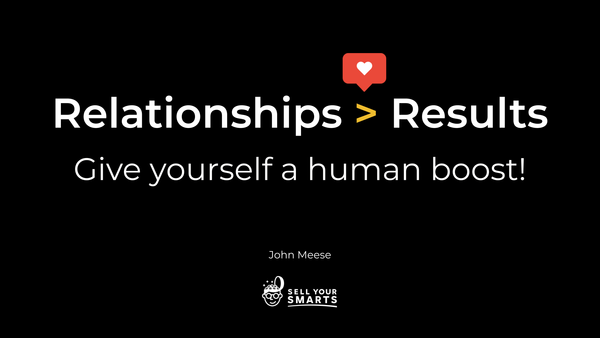How to Set Principles That Guide Difficult Business Decisions
For decades, companies have been setting core values (or principles) with inspiring words like “positivity” and “legacy” that do little more than look pretty as a poster on the wall.
In recent years, many business owners have woken up to this fact and abandoned core values as one more example of the largess of corporate bureaucracy.
More recently, Ray Dalio’s book became a #1 New York Times bestseller by translating his massive success as an entrepreneur and hedge fund CEO into a framework for thinking based on principles, saying:
“Whatever success I’ve had in life has had more to do with my knowing how to deal with my not knowing than anything I know. The most important thing I learned is an approach to life based on principles that help me find out what’s true and what to do about it.”
Abandoning core values or skipping the process entirely is a dangerous oversight. The core value process was broken, but the only way to build a consistent company culture as you scale a business is to document your thinking and systemize your most difficult decisions.
In fact, your culture is only the first thing at stake. Beyond that, your success as a visionary entrepreneur is based heavily on your decisiveness, but the further you progress with your business the more difficult your decisions become.
Should you hire a marketing manager? Should you fire your assistant? Should you enter a new market or launch a new product? That’s where your principles come in. In Ray Dalio’s definition,
“Principles are fundamental truths that serve as the foundations for behavior that gets you what you want out of life. They can be applied again and again in similar situations to help you achieve your goals.”
Integrity: The Foundational Principle
There is a large range of flexibility and personalization that you need as you clarify your principles. The range and detail of the principles you establish may vary.
Ray Dalio has several dozen detailed life and work principles in his first book, but Donald Miller recommends only keeping three.
For my business philosophy, I’ve articulated five.
Regardless of how many principles you establish, there is one foundational principle that many core value companies got right: integrity.
Integrity is the practice of showing a consistent and uncompromising adherence to strong principles. Integrity is foundational to all other principles because without it principles lose their value (and become platitudes on your about page or hung on the wall).
If you follow your own principles inconsistently, you will not benefit from them. Worse still, you cannot be trusted—and that has a direct correlation with your performance.
Harvard Business School Professor Michael Jensen started an extensive study in 2012, quantifying the effects of integrity. So far, he’s discovered that businesses which practice self-integrity as a core discipline have:
- Doubled productivity,
- increased net profit by 58%, and
- Tripled their company valuation.
Consistent Adherence to… What?
Integrity is the practice of showing a consistent and uncompromising adherence to strong principles, but what should those principles be?
To some extent, these principles are subjective based on the person practicing them, but there is a foundational natural law that all men and women practice to maintain integrity, best articulated by Maybury’s Laws:
- Do all you have agreed to do, and
- Do not encroach on another person or their property.
Whether or not you realize it, you’ve seen this natural law everywhere. Every major religion and political system articulates variations of these, which show up in the Christian faith as “Thou shalt not steal” and “Let your yes be yes, and your no be no” among others.
Adherence to these natural laws is culturally understood to be essential to any form of integrity no matter what religion or other belief systems you follow.
Integrity is crucial; Maybury’s Laws are paramount. When you’re considering your own business principles, you should consider these foundational to any principles you establish—but then you should start getting personal.
What is it about your personality or worldview that you wish to embed in your business? For me, it starts with my incorrigible optimism ????
Scott Barry Kaufman, a psychologist at Columbia University, has championed positive psychology by studying good behavior to identify a “light triad” of three personality traits practiced by the “everyday saint”:
- Humanism, which represents belief in the inherent dignity and worth of other humans,
- Kantianism, which is the practice of treating people as ends unto themselves, rather than a means to an end (named after Immanuel Kant), and
- Faith in humanity, which is the belief that other humans are fundamentally good, rather than enemies out to get you.
As an optimist, these are foundational to my worldview, and they are essential traits for anyone who wishes to create a positive culture or live a positive life. These can be a springboard for you to inspire your own principles, but you shouldn’t stop there.
Personally, my beliefs also extend to include adherence to the Christian Faith as prescribed by the Eastern Orthodox Church, and a collection of idiosyncratic opinions based on my own experience and perspective.
Self-Integrity, therefore, requires that I consistently act based on the same set of principles, and some of these principles are easier to follow than others.
Which Principles Should You Formalize?
With a strong foundation of integrity, a basic understanding of natural law, and a commitment to positivity, many decisions become immediately clear.
You do not need to establish written principles for behavior or decisions which are straight-forward or naturally guided by your foundational philosophy of integrity, harmony, and positivity.
We all have dozens (perhaps hundreds) of unwritten principles, and that’s okay.
Establish formal principles only where they guide difficult, important decisions.
Your formal principles should be the deciding factor when you’re on the fence about a new project, change in vision, or hiring and firing any staff on your team.
You need to embed your own quirks and commitments into these principles. After all, you’re the entrepreneur. You built this baby, and your business will always have your DNA.
Ask yourself, what is it about your approach to business that is different from the status quo? Is there some approach you have that other people see as strange? What are you passionate about? What guidelines do you need to articulate to your team that aren’t already clear?
These may or may not become your unique advantage, but at the very least they’ll uniquely reflect you.
My Personal Principles for Business
As I referenced earlier, behind each set of principles is a foundational principle of integrity. On top of that, I am committed to the harmony of natural law and the positivity of the light triad traits.
I’m an Eastern Orthodox Christian, juris naturalist, essentialist, and optimist. Practically speaking, what does that mean? I’ve limited my business philosophy to just five formalized principles:
1. Always Be Teaching
This has been my personal motto for several years because I believe there is a better path to profit than the “Always Be Closing” motto that permeates sales or the “Always Be Launching” motto many online entrepreneurs have adopted.
I’m definitely in the business of generating revenue and making a profit, but people have an inherent value and dignity whether or not they pay me money (see Humanism, above).
Because of that, I’m drawn to the content marketing model of teaching via free, valuable content (such as this blog or Platform University's newsletter) and using that content to teach while building trust with an audience who may become a customer in time.
The vast majority of people who read my free content will never become a customer, and that’s okay with me. I believe that there are enough problems to solve in the world that I am happy to leave my content open for anyone to implement in their business, whether or not they paid me a dime.
2. Never Stop Learning
Happy is the man who finds wisdom, and the man who gets understanding, for the gain from it is better than gain from silver and its profit better than gold.
Proverbs 3:13-14 (RSV)
Wisdom is defined as the ability to make good decisions based on a combination of experience and information. To become wise, then, is a freely available path—but to pursue that path requires an intentional approach.
What teachers are you learning from? What information are you studying? When you fail to hit a goal, how do you learn from that? What about when you succeed?
All of those are critical questions for continuous growth because wisdom requires both experience and information. This core value has inspired my intentional learning and approach to perpetual progress, rather than perfection (James Clear would call these marginal gains).
3. Do Less, Better
Whenever someone offers more I pause to search for better. In my experience, the two are rarely found the same way.
Greg McKeown provided a name for this approach in Essentialism: The Disciplined Pursuit of Less, where he said,
“Essentialism is not about how to get more things done; it’s about how to get the right things done. It doesn’t mean just doing less for the sake of less either. It is about making the wisest possible investment of your time and energy in order to operate at our highest point of contribution by doing only what is essential.”
This principle informs my approach to creating content, explains why I’m not on social media, and helps me clarify how and when to delegate tasks to my team.
I’d rather create one detailed & transformational article each week than write a short one each day (no offense, Seth).
I’d rather offer a limited selection of products that get my full attention than sell dozens of products and services that may or may not be worth what they cost.
I’d rather serve a limited group of customers and ensure each one gets a return on their investment than serve thousands who may or may not succeed.
In today’s world there is no shortage of opportunity—but there is a real shortage of execution. Consistent, high-quality execution on the right tasks at the right time is a powerful differentiator in today’s noisy marketplace.
4. Default To Transparency
In terms of business practices and results, there is a small-but-growing movement of radical transparency—but I personally don’t see anything “radical” about telling truths.
The simplest reason to Default To Transparency is that it’s emotionally freeing; honesty and truth are easiest when you have nothing to hide.
Many (perhaps most) business owners hold their cards close to their chest, allegedly as a strategic advantage—but that’s just not me.
Beyond that, it’s also much easier to talk (or write) about business without spending half your energy filtering what you say based on whether or not it should be confidential—and as it turns out, sharing information that most entrepreneurs don’t is an advantage for you and your customers.
I do make several exceptions to transparency, such as passwords, bank account numbers, and anywhere where confidentially is part of a current agreement (such as my work with Michael Hyatt) but that’s why this principle is a default.
In business, this principle is why I feel free to share with you what I'm doing and why I'm doing it (especially when it's complicated).
In personal relationships, this also means that I practice radical candor. Kim Scott, a former executive at both Apple and Google who literally wrote the book on Radical Candor defines radical candor as equal parts caring personally and confronting directly, and I do my best to practice that.
5. Celebrate Healthy Competition
I believe worrying about competition is generally a waste of energy and time.
More often than not, your “competitors” are simply entrepreneurs chasing the same goals as you, just with a separate business entity. I see no reason for us to squabble when we could instead cheer each other on.
If we have a common mission, I pray we both make a positive impact. If not, may the best entrepreneur win—though there is no rule that says we can’t both win.
There are more problems in the world than you or I can solve on our own—and after all, that’s what business is built on: solving problems.
This principle was inspired by the novel Ishmael, by Daniel Quinn. I’m afraid if I tried to paraphrase the Ishmael case for living like a “leaver” then I would butcher it, but the novel shook my worldview for the better (so you should read it).
Nature works in multiples. There is not one dog, one lion, one human, or one source of water. We are in balance when we have learned how to coexist harmoniously, despite the fact that for food, water, and real estate we are all technically “competitors”.
Man defies nature when he seeks to eliminate competition, taking more than he needs with the goal of starving out others. It’s selfish and destructive, usually yielding only short-term rewards.
This principle is also routed in abundance thinking, to focus on the possibilities rather than the limits and recognize that there are more than enough resources to go around. Also, a commitment to think win-win opens a door to cooperation with an open hand.
Yes, your business’s primary job is to generate wealth for you and your family, but as long as you believe there is more than enough to go around than you can do that and be generous with customers and competitors alike.
Principles in Practice
Each of these five principles is distinct, but they don’t operate independently.
Always Be Teaching inspires how I apply Default to Transparency in my content, but it also reinforces Do Less, Better and keeps me focused.
Celebrate Healthy Competition intersects with Default to Transparency to inspire my Uncopyright policy. Because I Default to Transparency and follow Always Be Teaching, I also have the public opportunity to Never Stop Learning by dissecting business results on this blog.
Whether I'm working alongside, inside, or owning & operating any business, these principles guide my personal approach to difficult decisions.
I hope you see that principles are better than platitudes. These five are mine, but you can (and should) set principles that are uniquely your own.
For a few examples of principles done well check out the core values of Michael Hyatt, ConvertKit, and Buffer.
Question: What principles (formally or not) do you practice in your approach to business?





